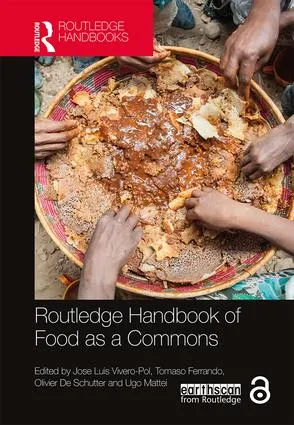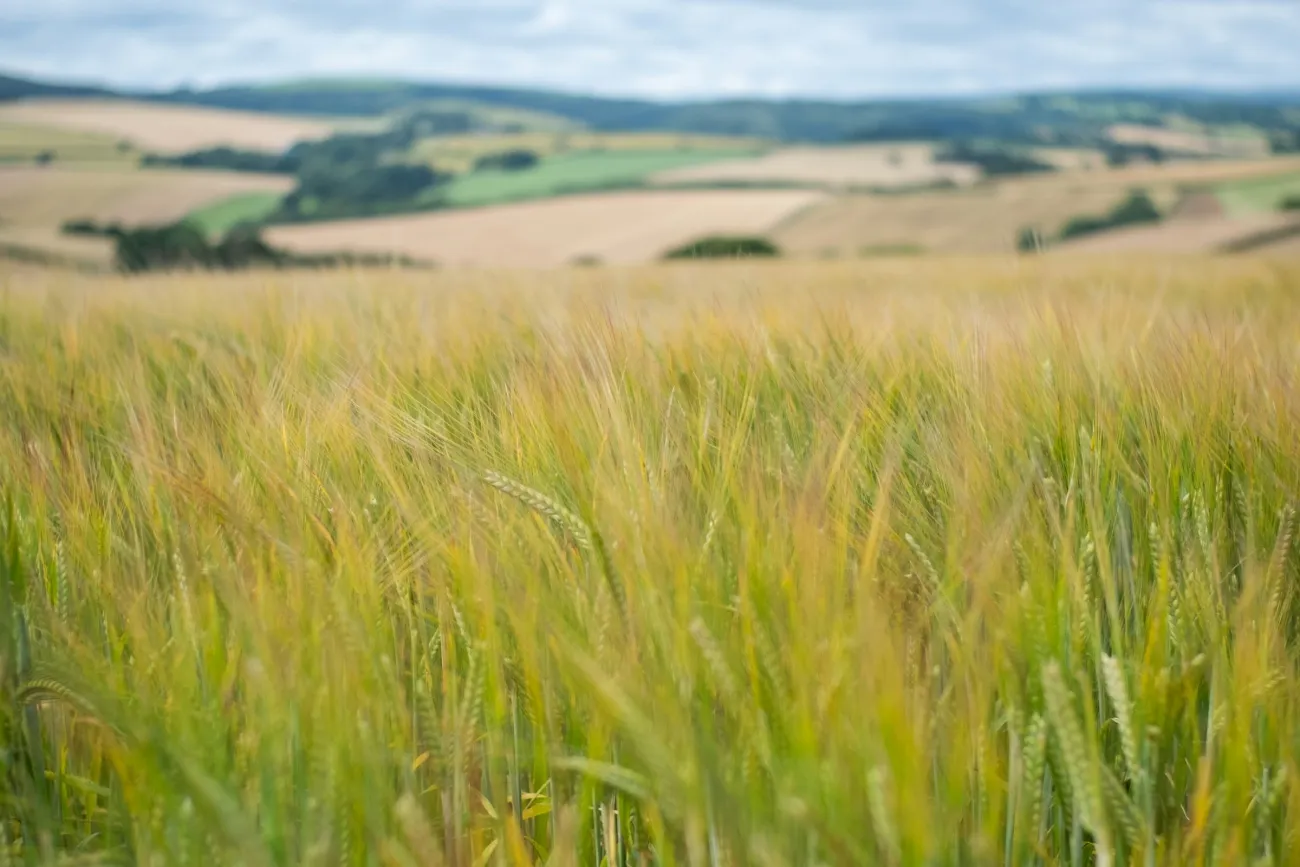This book, edited by Jose Luis Vivero-Pol, Tomaso Ferrando, Olivier De Schutter and Ugo Mattei, engages with different schools of thought on how food can be treated as a commons rather than a privatised commodity.

Publisher’s summary
From the scientific and industrial revolution to the present day, food – an essential element of life – has been progressively transformed into a private, transnational, mono-dimensional commodity of mass consumption for a global market. But over the last decade there has been an increased recognition that this can be challenged and reconceptualized if food is regarded and enacted as a commons.
This Handbook provides the first comprehensive review and synthesis of knowledge and new thinking on how food and food systems can be thought, interpreted and practiced around the old/new paradigms of commons and commoning. The overall aim is to investigate the multiple constraints that occur within and sustain the dominant food and nutrition regime and to explore how it can change when different elements of the current food systems are explored and re-imagined from a commons perspective. Chapters do not define the notion of commons but engage with different schools of thought:
- the economic approach, based on rivalry and excludability;
- the political approach, recognizing the plurality of social constructions and incorporating epistemologies from the South;
- the legal approach that describes three types of proprietary regimes (private, public and collective) and different layers of entitlement (bundles of rights); and
- the radical-activist approach that considers the commons as the most subversive, coherent and history-rooted alternative to the dominant neoliberal narrative.
These schools have different and rather diverging epistemologies, vocabularies, ideological stances and policy proposals to deal with the construction of food systems, their governance, the distributive implications and the socio-ecological impact on Nature and Society.
The book sparks the debate on food as a commons between and within disciplines, with particular attention to spaces of resistance (food sovereignty, de-growth, open knowledge, transition town, occupations, bottom-up social innovations) and organizational scales (local food, national policies, South–South collaborations, international governance and multi-national agreements). Overall, it shows the consequences of a shift to the alternative paradigm of food as a commons in terms of food, the planet and living beings.
Reference
Vivero-Pol. J., Ferrando, T. De Schutter, O., and Mattei, U. (2018). Routledge Handbook of Food as a Commons. Routledge, London and New York.
Read more here. See also the Foodsource resource What about the relationship between food, culture, ethics and social norms?




Comments (0)